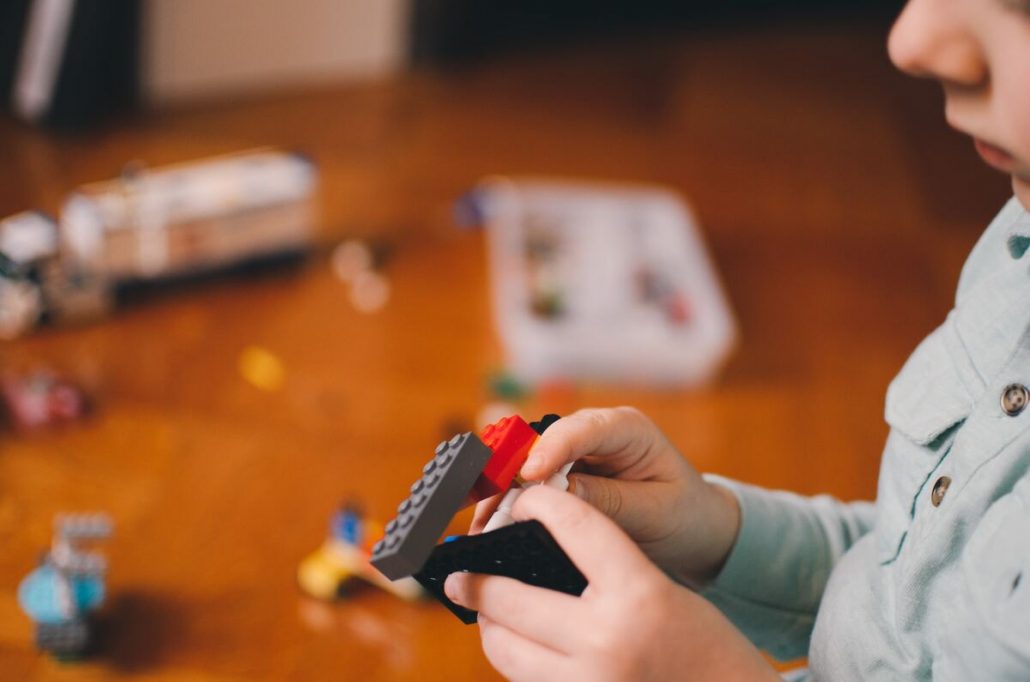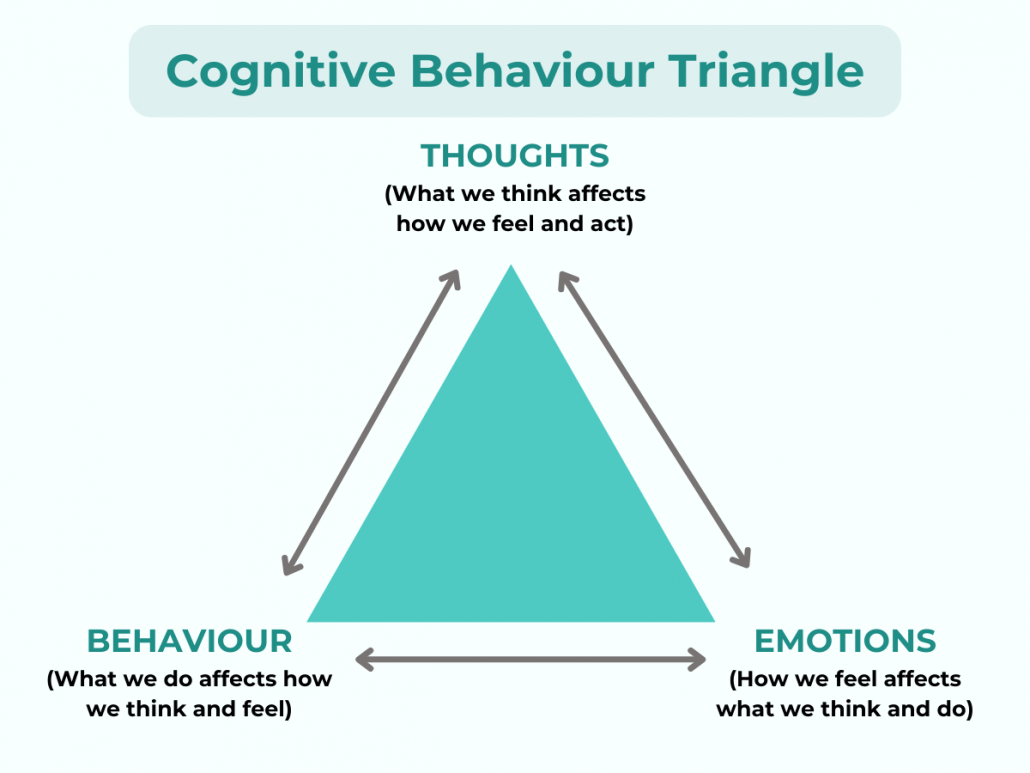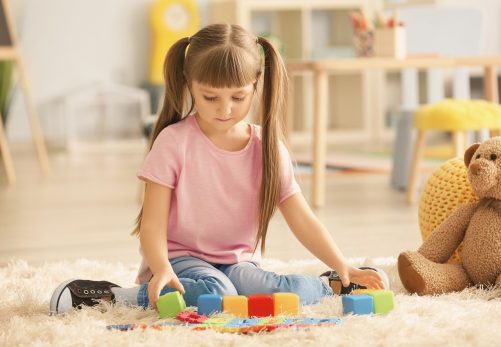Child therapy is a supportive process that provides a child-friendly, safe space for children to engage in confidential discussions regarding concerns or difficulties that they are experiencing. At Toronto Family Therapy we specialize in counselling for children.
We approach each child with empathy and warmth, always considering the child’s needs and perspective. We work towards building a trusting relationship with each child. Together we can work towards finding positive solutions to challenges. Our specialized child therapists enable children to overcome challenges, develop coping strategies, and enhance emotional intelligence.
We provide the necessary support and interventions to enhance children's mental health and well-being, aiding them in addressing issues like:
Therapy can be a wonderful, rewarding, and educational experience for children.
Empower your child to express themselves – Contact us today.
Our Unique Approach to Child Counselling
Children definitely do not know what to expect when they first begin therapy. They rely on their parents to be fully encouraging, open, and supportive of the process. Therapy can be a wonderful, rewarding, and educational experience for children.
They can learn how to express themselves, articulate how they are feeling, communicate, problem-solve, and find resolutions. They can learn how to manage stress more effectively, recognize when they are feeling upset or triggered, understand themselves better, and feel more connected to their family.
At Toronto Family Therapy, there is an entire therapeutic team, with unique specializations and expertise that are available to assist clients. This ensures that every client who inquires about our services can find a therapist that best fits their needs. We take a collaborative and team- based approach. There is typically appointments available and clients can often be seen fairly urgently. Each child can have their own individual therapist, but they are part of the same team.
What Clinical Approaches Are Used in Child Therapy?
A variety of evidence-based clinical approaches can be used in child therapy, such as child centered play therapy, drama therapy, cognitive behavioural therapy, dialectical behaviour therapy and talk therapy.
Play Therapy
Play therapy is a therapeutic approach that is mainly for children to help them express their feelings, improve communication, learn new social skills and positive ways to interact in relationships. Children enjoy play therapy because it can be fun, imaginative, creative and social. Children can work through challenging emotions and confront their problems in play therapy and explore different solutions. It is especially beneficial for children through the ages of 3 to 12 years old. The therapist will use toys, games, books, arts and crafts and other creative activities to engage children.
Play therapy can be used to help children cope with a wide range of problems they are facing, such as mental health issues (anxiety, depression, ADHD, obsessive compulsive disorder and oppositional defiance disorder). It can also be used to help deal with anger, trauma, learning challenges, relationship difficulties and behviour problems. Children can explore their feelings about their parents’ separation, loss, or transitions through play therapy. Therapists can also develop a deeper understanding of children through observing them play. Parenting skills can also be developed by observing and teaching new skills in play therapy.

Drama Therapy & Creative Art Therapy
A form of therapy that uses art forms, such as crafts, drawing and painting, drama and movement and dance to explore and address thoughts, feelings and emotional challenges in a non-verbal and creative ways. It can help individuals and children process their feelings and work towards healing and self-growth. It is used to address a variety of issues, including anxiety and depression, behavioural issues, family conflict and grief.
Cognitive Behaviour Therapy (CBT)
CBT is a widely supported therapeutic approach that helps people of all ages (including children and teens) understand how their thoughts influence feelings and behaviours. It can help children and teens manage their problems by changing the way they think and behave. It is structured, goal oriented, solution focused and teaches strategies and skills. It is highly effective in treating anxiety, stress, ADHD, trauma, depression, panic, relationship issues and other significant issues that impacts a child’s well-being. There are common techniques learned in CBT, such as relaxation techniques to calm the body, mindfulness and grounding techniques to that can be used to reduce stress, keeping a journal or written log to track worries and negative thoughts, transforming negative thoughts and worries to balanced thoughts, gradual exposure to worries and fears.
CBT is also helpful to use with children. It helps them manage their worries and focus on the present. There are CBT worksheets for children which can help children learn the techniques and strategies discussed in therapy visually.
Sessions can be conducted with the child individually. And those sessions can also involve the parents to help them support what children learned in therapy or to teach the parents parenting skills.
Children who have participated in CBT often have higher self-esteem, are more equipped to control their thoughts, gain problem solving skills and their overall behaviour improves.

Trauma-Focused Cognitive Behavioural Therapy (TFCBT):
Trauma-Focused CBT is a form of treatment method used with children to help reduce trauma related- symptoms. Working with children and involved (non-offending) family members, TFCBT may include coping strategies, behaviour modelling, psychoeducation, exposure therapy, and body safety skills training, adjusted according to treatment needs.
Talk Therapy
Talk therapy, also known as Psychotherapy, is a process that can be utilized with children and teens, where they can discuss their thoughts, problems, and experiences with a therapist. Children will have the opportunity to discuss any concerns that they have and work through their challenges with a highly skilled therapist who can help them address their problems and regulate their emotions. The therapist provides a confidential and safe space for the child to speak openly about anything that may be causing them distress. Therapists can guide children to help them express their feelings effectively and have open conversations. Therapist can also help children evaluate their problems in a safe and non-judgemental space. Talk Therapy allows people to explore any issues they are facing, and most importantly allows people to feel better.
We are often so focused on how to teach children how to read and write. We must also teach them how to feel, talk about their emotions and control their thoughts. Overall, child therapy can help children learn to manage their emotions more effectively, cope with the changes, and develop positive relationships and communication skills.
We are so fortunate to have a number of dedicated and trained child therapists on our team to help your children overcome their struggles, have a positive outlook on life and help your child thrive.
Our Approach
Our approach involves four essential steps: an initial intake interview with parents, an introductory session focused on building trust with the child, personalized planning, and ongoing therapy. These steps ensure a comprehensive and effective therapeutic process for children and their families.
First Step: Parent(s) Intake Interview
Prior to meeting with the child, the first step is to have an intake appointment with the parents. If the parents are separated, they can have separate intake appointments. The purpose of the initial intake interview is for the therapist to engage the parents, gather information about the child and understand any concerns.
The following topics may be explored:
- Discussion of the problem or concern
- family life and family dynamics
- school and academic performance
- parents’ willingness to support the pediatric therapy
- background information
- any stressors or losses that the child has experienced,
- sibling conflict,
- mental health issues,
- past counseling experiences and more.
- confidentiality and safety
Our child therapists will prepare the parents on how to discuss therapy with their child/ren.
Second Step: Introductory Session with Child & Therapist
The introduction session’s focus is on building a trusting therapeutic relationship. The therapist will meet with the parent and child together for a brief introduction to the therapist. During this session, the therapist will also spend time with the child individually to get a sense of the issues they are facing.
The Therapist will make sure the child feels safe and willing to engage in therapy. The therapist will explain the process of therapy in a simple and child friendly language. The therapist may try and get to know the child through playing a game or activity with the goal of helping the child express their feelings.
They will ask the child to speak open and honestly about their feelings, while explaining the importance of confidentiality in a child friendly way.
If a child feels nervous or reluctant the therapist will help ease their feelings, ask questions, listen effectively, and provide support while working on building a connection.
Discuss the therapeutic goals and plans for therapy with the child. This can involve brainstorming and exploring what the child wants to learn or improve.
Third Step: Planning
The therapist will have a discussion with the parents about the frequency and structure of the child therapy sessions.
Sessions can be in virtual or in person depending on the needs and preferences of the parent and child. Everybody’s family is different, and the therapist will create a personalized therapeutic plan for each child
Fourth Step: Ongoing Therapy
The therapist will continue to meet with the child individually and involve the parents as necessary and provide feedback to the parents regarding progress and at the same time, gather feedback from the parents regarding how the child has been progressing. This is where the real therapeutic work is being done, while monitoring and resetting or modifying the goals of therapy.
During this phase, different therapeutic approaches can be explored, such as Talk Therapy, Cognitive Behaviour Therapy (CBT), Drama & Creative Play Therapy, or Trauma Focused Cognitive Behaviour Therapy.
Each time the child comes to therapy they may do some talking or playing to express their feelings. Sometimes they may talk about upsetting things and issues that bother them. Through more exposure, sharing your thoughts and feelings become easier as we become more comfortable in the therapeutic environment.
In some cases, it can be beneficial to observe each parent separately with the child. This will allow the therapist to gain insight into the family dynamic and better understand how the child may act or react differently to each parent based on the parent’s individual approach or behaviours.
Therapy takes time, commitment, and effort from everyone involved to ensure a successful process.
Looking for Child Therapy?
We can help! Contact us today.
Common Reasons Children Seek Counselling Support:
Childhood Anxiety
The feeling of anxiety is a rather healthy or normal feeling that can actually be used to motivate children when it is occurring in moderation. It is a feeling of unease, such as worry or fear, that can be mild or severe when exposed to a stressor. Anxiety becomes a mental health disorder when it is a feeling that is recurring, excessive, and/or chronic, and interferes with the livelihood of the child.
If your child is persistently:
- worrying
- fatigued
- twitching or trembling
- having panic attacks,
- having insomnia,
- dizziness,
- difficulty breathing or any other symptoms you suspect are contributing to anxiety, it will be helpful to speak to a therapist.
Therapy will help children understand the main/root cause of their anxiety, learn effective coping strategies and skills that they can use in their daily life, improve their self-esteem, and allow them to feel safe and accepted when sharing their emotions. Children should not have to think of their anxiety as something to be ashamed of, but rather something that is normalized and encouraged to talk through.
Anxiety is very treatable and the rate of success is excellent with the appropriate treatment. Cognitive behavioural therapy is a common approach for children experiencing anxiety as there is a great deal of research that is able to support its effectiveness. Therapy for anxiety takes time, commitment, effort and the support of parents/caregivers.
The child therapists at Toronto Family Therapy are highly experienced in treating childhood anxiety and are trained in Cognitive Behavioural Therapy.

Separation and Divorce
All children are affected by parental separation/divorce and experience distress. The family dynamics will change and this can be difficult, and even scary for children. All children react differently to separation/divorce and can struggle with the family transition.
Children are resilient and often with therapy and support at the early stage this transition can be experienced as an adjustment rather than a crisis. Child therapy is effective in helping children cope with separation and divorce because it provides a safe and non-judgmental environment for children to express their feelings and work through their difficulties. The therapist can also provide helpful coping strategies and techniques to help the child manage the emotional distress caused by their parent’s separation. Moreover, a therapist can provide information about the process of divorce and help the child understand the changes they are going through.
Child therapy can be used to help children build healthy relationships and communication skills, which is important to help them successfully navigate the difficult times of divorce and separation. The therapist can also help the child develop positive coping strategies and self-esteem. Through therapy, children can learn to better manage their emotions in a constructive way, and practice healthy problem-solving skills. Overall, child therapy can be an effective way to help children cope with the stress and emotional distress that comes with divorce and separation.
Parents can foster healthy adjustment in children during this transition if they do not expose their children to conflict and adult issues. Children have the right to love both their parents and feel safe and secure in their relationships. Putting children in the middle of parental conflict can cause a number of significant risks to children, including compromised relationship with one or both parents and previously loved family members, anxiety or mental health issues in children, poor school performance and social issues and their child’s perception of a healthy functional family.
The child counsellors at Toronto Family Therapy can guide parents to protect children during separation and divorce and promote a positive outcome for both parents and children.
Family Conflict and Challenges
Children sometimes need an outlet to communicate their emotions when things get really heated or overwhelmed at home. Additionally, children occasionally need to put into words how they are feeling or experiencing an event in order to come up with efficient ways to cope.
Emotion regulation is helpful for the child as it is important for children to learn how to manage intense emotions. They need to learn how to not be reactive, or impulsive and need to learn techniques on how to calm down and stay focused. Learning coping skills and how to regulate emotions can build healthy relationships, and the development of skills that the child will have throughout their lives to manage stress. Every child and adult gets upset from time to time. But knowing how to calm down quickly and effectively is critical in building strength and resiliency. Children become happier and more satisfied adults when they learn how to understand and regulate their emotions. Often Emotional Regulation is a skill that is taught. Just as children learn math science and English, they also need to learn the skills to manage their emotions. Child Therapy can be highly educational for both the child and their parents.
Child therapy is an effective tool to comprehend and face family challenges. It can also aid in strengthening family relationships, building empathy, identifying patterns of communication, and resolving conflicts within the family.
Social Challenges & Bullying
Children encounter all sorts of social interactions in their lifetime. Especially in this new world filled with social media, there are now new various ways that children are able to connect with each other. Whether positive or negative, social interactions are important for a child’s cognitive and emotional development. As well, socialization helps children learn norms, cultures, and values.
Our therapists can assist children in developing the abilities and confidence they need to thrive in social relationships by offering a safe and encouraging environment. Counsellors can help navigate situations and guide children on a healthy route to dealing with the trauma bullying can cause as well as ways to cope with the troubles of growing up.
Our therapists will assist children in developing good peer communication skills, appropriate boundary-setting, assertiveness skills and the ability to articulate their needs and feelings in a social setting and help them become positive kids.
Self–Esteem Issues & Confidence Building
A child’s overall sense of worth or personal value is known as self-esteem. Positive self-esteem helps children with coping with their mistakes. Even if they initially fail, having this feeling of confidence encourages kids to get back on their feet and try again. Children that have higher self-esteem perform better in their academic, personal, and social lives.
Our Therapists at Toronto Family Therapy can work with children on identifying negative self-talk and overcoming it. Negative self-talk can act as a major roadblock to self-esteem. Our therapists can assist a child in recognizing this negative self-talk, working to question it, and substituting balanced and positive self-talk in its place. The therapist may use approaches such as Talk Therapy, Cognitive Behaviour Therapy (CBT), Drama & Creative Play Therapy, or Trauma Focused Cognitive Behaviour Therapy.
This will give a child a more positive outlook on themselves, giving them more confidence. It is also important to encourage the child to care for themselves. Self-care promotes self-love, so it’s important to promote self-care to children and make sure that throughout their busy lives, they make time for themselves as well.
Excessive Anger and Acting Out
When a child misbehaves, the pattern of inappropriate behavior is often used to mask more intense emotions of loneliness, fear, or sadness. Something deep-rooted is going on within the child to make them act out in the way that they have chosen. If you react inappropriately to the child’s misbehavior or assume they are just “bad,” the child may feel even more isolated while dealing with their feelings, often making them act out to a higher degree than before.
An interactive environment that includes talking, playing, or other activities can be used as part of psychological treatment with kids who act out to help them express their feelings and thoughts in a healthy manner. Additionally, therapists may observe parents and children interact and then offer suggestions for alternative ways to respond. The safe space that our therapists provide, gives children the comfort that they need to express the root of their issues and gives a foundation to solve what’s really bothering them.
Video Game Overuse
A contributing factor to excessive anger or acting out within a child could be their use of video games. When a child plays video game too much, they become more socially isolated, which impairs their ability to socially interact with people. This could lead to children being unsure of how to control their behaviour in social situations.
In addition, playing an excessive amount of video games can lead to the child being tired and irritable, and when a child is cranky, any minor annoyance may act as a trigger for them to act out. As well, the violence in video games may desensitize children to the violence in the real world. This may make them think that the way that people interact in video games is normalized which will reflect in their own behaviour in reality. Parents should keep an eye on their kids’ video game usage to make sure it isn’t affecting their psychological and emotional development and well-being.
Therapy can help a child overcome their urges to overuse video games. Cognitive Behavioural Therapy is a standard approach for treating video game abuse and can allow the children to shift their thoughts about compulsive gaming and replace them with healthier thinking patterns. The therapists and Toronto Family Therapy are well equipped to treat children who spend too much time playing video games and support them in leading healthier active lives.
Attention Deficit / Hyperactivity Disorder (ADHD)
Attention deficit/ hyperactivity disorder is characterized by difficulties with attention, hyperactivity, and impulsivity. Children with ADHD have distinguishing symptoms, such as impulsiveness, disorganization and problems prioritizing, poor time management skills, problems focusing on a task, trouble multitasking, excessive activity or restlessness, poor planning, and low frustration tolerance. Along with having an effect on interpersonal connections, academic achievement, and social interaction are all impacted by ADHD.
Therapy will benefit people with ADHD as it will provide them with ways to help them focus, and create a safe environment that will help them reduce anxiety and help their self-esteem. Therapy will help reshape how the person feels about themselves and their ADHD, and give them useful tools to improve their attention span.
Looking for Child Counselling?
We can help! Contact us today.

